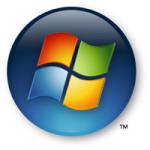 Cakewalk has posted a Vista Resource Page for Windows users. You might expect this to be pro-Vista and Cakewalk-centric, but it’s actually a very useful jumping-off point for some solid information for upgraders. Most helpful: there’s a comprehensive list of audio drivers for Vista, and an exhaustive list of links to coverage from various publications.
Cakewalk has posted a Vista Resource Page for Windows users. You might expect this to be pro-Vista and Cakewalk-centric, but it’s actually a very useful jumping-off point for some solid information for upgraders. Most helpful: there’s a comprehensive list of audio drivers for Vista, and an exhaustive list of links to coverage from various publications.
Cakewalk Vista Musicians’ Resource Page
Up front in driver support: Cakewalk, Echo, Edirol, E-MU, Focusrite (which I personally tested with good results), Frontier, MOTU, Native Instruments, PreSonus, RME, and Universal Audio.
I’d take issue only with the “key benefits” section; unfortunately, it’s just tough to boil down benefits to a few lines. WaveRT will benefit some, but not all. WaveRT driver support benefits only people with PCIe devices, specific WaveRT drivers, and a compatible host (SONAR is one, Cakewalk’s own Project5 is not, for instance). If you’re using USB and FireWire for audio, it’s a non-issue (and I believe the same is true of PCMCIA and CardBus). That leaves most people running ASIO cards, with what appears to be largely similar latency performance as found on Windows XP. (That could mean Vista isn’t a step back — but it might not be a step forward, either, from a pure latency performance perspective.)
Running on the GPU: too soon to call. The advantage of off-loading graphics from CPU to GPU haven’t quite delivered yet on some devices. Turning Aero off (which leaves graphics rendering back on the CPU) actually can improve audio performance, particularly on — as near as I can tell — NVIDIA systems. Native Instruments, for one, has confirmed that Aero can exact a tax on performance. Future driver updates or service packs could change that — in theory running on the GPU should work, as it does on Mac OS X — but I’d hesitate to call it a definite benefit just yet. There are other potential benefits worth researching; I’m just hopeful video performance in particular smooths out over coming months. (High-end/low-end card doesn’t seem to matter, either; this is a driver and OS issue.)
Also, I think we almost need a resource that breaks down for whom XP still makes sense. It’s just tricky in audio, because the primary variables — ASIO audio drivers and MIDI — are actually quite similar in XP and Vista. And the reality is most music software will in fact run fine under both (drivers and copy protection being two areas to watch). It’s everything else that can make the difference.
Otherwise, this is a great resource, and we’ll continue to track Vista. I’ve gone back to XP on my one Vista-compatible PC and am happy there — more on that soon — but some have had better results. Regardless, with new machines shipping with Vista, you definitely owe it to yourself to research the OS if you’re upgrading computers.
You can keep up-to-date on CDM’s latest CDM coverage via our Vista tag.